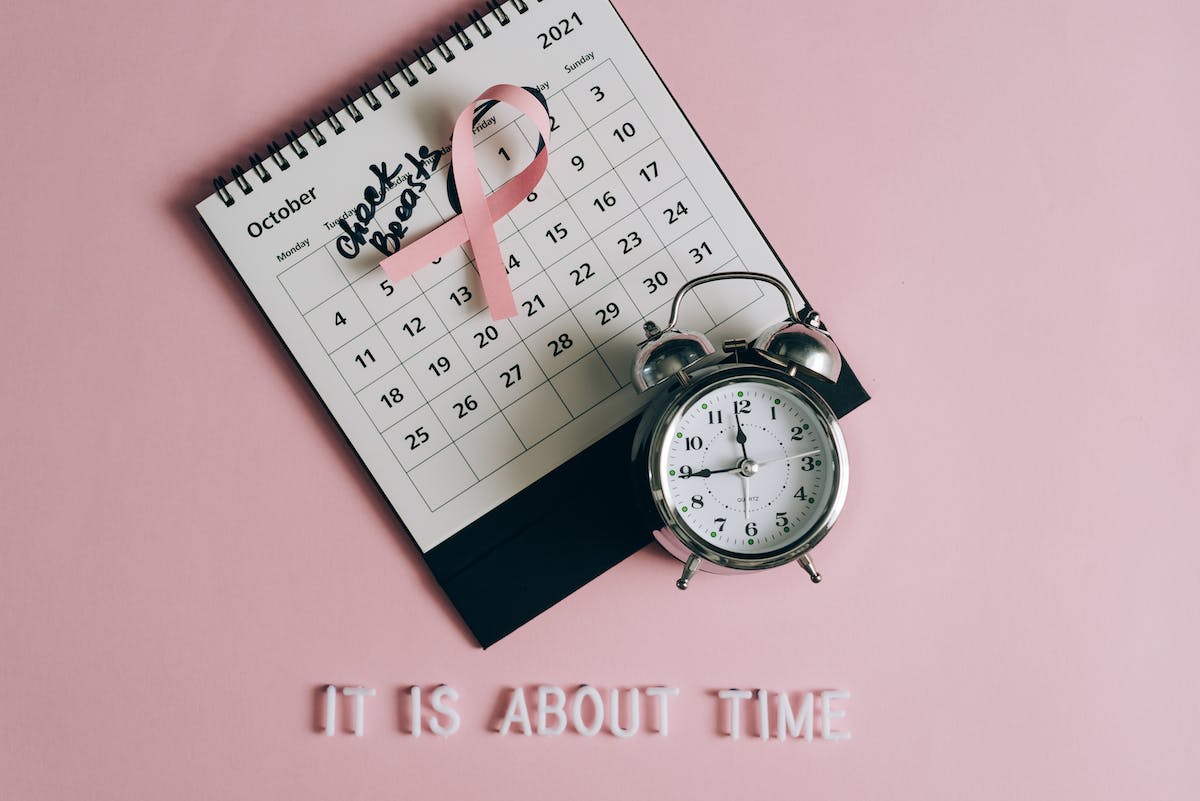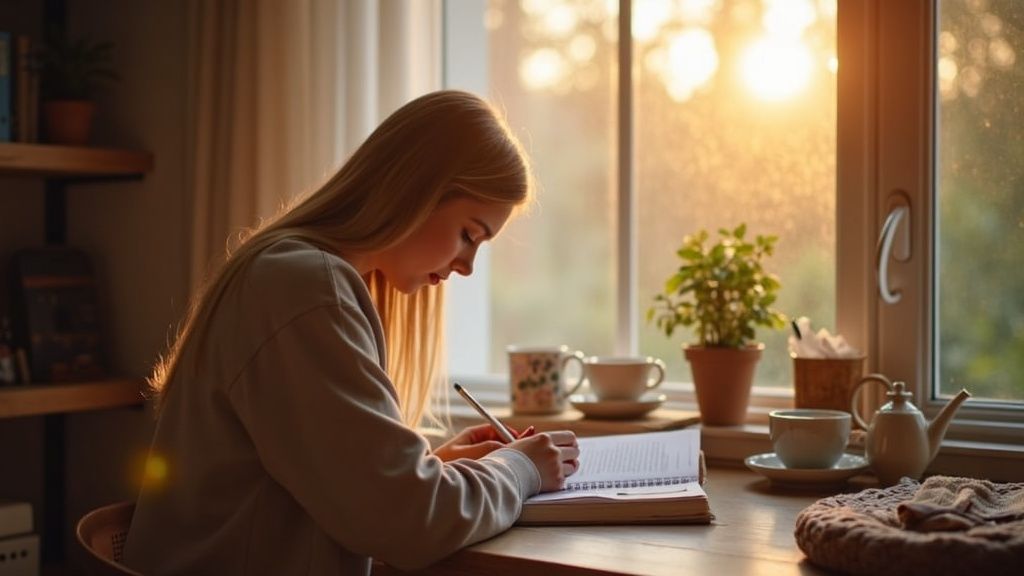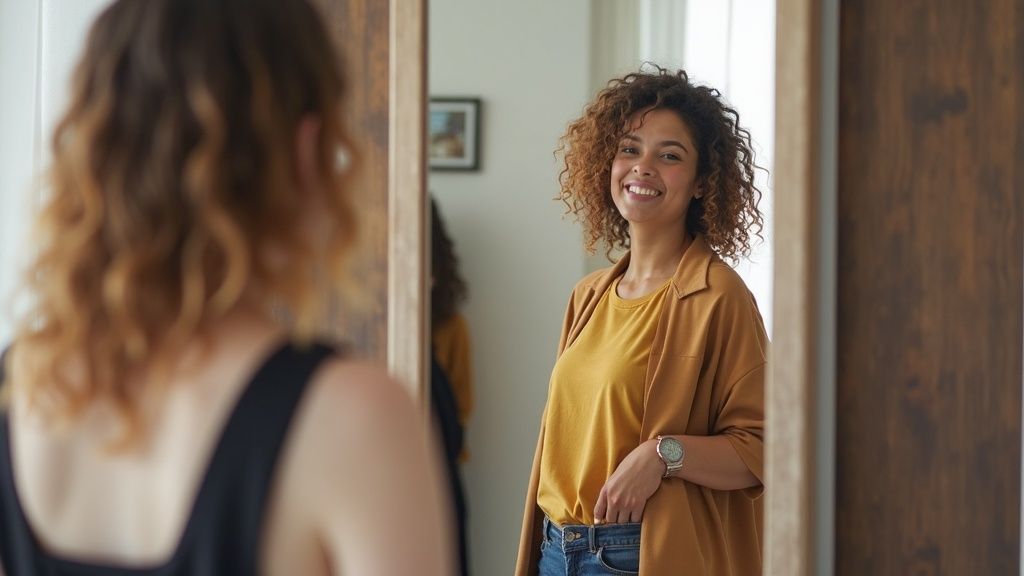Advertisement
Lifestyle
5 Surefire Strategies for Reducing Anxiety at Night

5 Foolproof Hacks to Calm Your Anxiety at Night
Understanding Your Anxiety
Anxiety disorders are among the most common mental health issues worldwide, and a huge percentage of people suffer from them. They’re characterized by persistent worrying, nervousness, fear, and apprehension that is out of proportion to the events that trigger them. Sleep disturbances, which include having trouble falling asleep or staying asleep, are commonplace for those with anxiety.
For many, the quiet solitude of nighttime and the absence of daytime distractions can exacerbate worries, resulting in heightened anxiety at night. The relationship between anxiety and sleep is often reciprocal- while anxiety can cause sleep problems; lack of sleep can also contribute to anxiety.
Allow me to share these scientifically backed hacks to help you ease your nighttime anxiety and get a restful sleep. This is neither medical advice nor treatment plan but will surely give insights on how to handle anxiety at night.
Let’s take Alice, for instance; she was unable to sleep due to her ongoing anxiety about work. She started practicing the below coping mechanisms and gradually started noticing improvements in her sleep routine.
- Meditating before bed.
- Developing a regular sleep cycle.
- Cutting down caffeine intake.
- Practicing physical exercise during the day.
- Limiting exposure to screens before bedtime.
- Avoiding heavy meals close to bedtime.
The Power of Meditation
Meditation is a powerful tool that can assist in reducing anxiety and improving sleep quality. It encourages relaxation and the development of positive thoughts. While meditating, your awareness is shifted away from the chaotic thoughts racing through your mind, helping you to enter into a state of deep restfulness.
Numerous studies have shown that engaging in mindfulness meditation can significantly decrease anxiety levels. Through the practice, individuals learn how to release anxiety, reduce stress hormones, slow down a racing mind and let go of negative emotions.
Relaxation techniques like diaphragmatic breathing, progressive muscle relaxation are often incorporated into meditation practices. They play a pivotal role in relaxing the body, calming the mind and lowering stress levels.
John was suffering from generalized anxiety disorder. He started practicing mindfulness meditation daily and gradually noticed reduced symptoms over weeks.
- Started with guided meditations
- Practiced slow, deep belly breathing.
- Focused on present sensations to remain grounded.
- Avoided judgement of passing thoughts.
- Regularly practiced for 20-30 minutes every night before sleep.
- Acknowledged feelings of anxiety but did not react to them.
Importance of Having a Sleep Routine
Establishing a regular sleep routine is a vital strategy in managing nighttime anxiety. Consistently going to sleep and waking up at the same time everyday can regulate your body’s natural circadian rhythm and aid in better sleep quality.
A consistent sleep schedule reinforces the body’s sleep-wake cycle and helps promote better sleep. Abiding by this timetable seven days a week is optimal. Regularity is key, even if it means feeling a little sleepy for a few days as your body adjusts.
The consistency will help you fall asleep more quickly and wake less frequently during the night. It’s one of the most effective habits for those seeking relief from nighttime anxiety and struggling with insomnia.
Consider Tom, who had irregular sleep patterns. He started going to bed and waking up at the same time each day. Over a period of a few weeks, he found his sleep quality improving.
- Chose bedtime when naturally tired.
- Avoided sleeping in, even on weekends.
- Adjusted sleeping schedule in increments if needed.
- Limited napping to 15-20 minutes in the afternoon.
- Created a restful environment to sleep.
- Incorporated relaxing pre-sleep rituals.
Reducing Caffeine Intake
Caffeine is known to increase heart rate, cause nervousness and insomnia, symptoms that are remarkably similar to those experienced during an episode of anxiety. It can stimulate your brain and interfere with the calming, slowing messages it sends out when it’s time for sleep.
Although some people metabolize caffeine more efficiently than others, it’s best avoided by anyone prone to anxiety or disturbed sleep, especially in the hours leading up to bedtime. That late-afternoon cup of coffee might just be the reason you’re staying awake at night.
Moderation is key when considering caffeine intake. Gradual reduction will help avoid withdrawal symptoms.
Consider Sarah, a caffeine-addict who drank 3-4 cups of coffee per day. She cut down her caffeine intake to one cup in the morning and observed better quality sleep over time.
- Limited daily dose of caffeinated drinks.
- Opted for decaf versions post midday.
- Avoided hidden sources of caffeine like chocolate or medications.
- Gradually decreased caffeine intake to lessen withdrawal symptoms.
- Explored herbal tea options as an alternative.
- Drank plenty of water to stay hydrated.
Engaging in Daily Exercise
Physical activity contributes positively to both physical health and mental well-being. It has been found to reduce levels of tension, stabilize mood, improve sleep, and enhance self-esteem. Just five minutes of an aerobic exercise can stimulate anti-anxiety effects.
Exercise promotes feelings of well-being and releases endorphins in the body, which are natural mood lifters. It also helps regulate sleep patterns, making it an excellent non-pharmacological treatment option for insomnia.
However, the timing of exercise is important. While regular exercise can help you sleep better, performing it too close to bed can interfere with sleep.
Take the case of Kim who started doing moderate aerobic exercises during day time and experienced less night-time anxiety and better sleep quality.
- Incorporated at least 30 minutes of moderate-intensity exercise daily.
- Chose exercises she enjoyed to keep her motivated.
- Avoided strenuous workouts close to bedtime.
- Started slowly and gradually increased exercise intensity.
- Focused on maintaining consistent exercise schedule.
- Ensured she stayed hydrated before, during and after the workout.
Avoiding Screen Time before Bedtime
Our last strategy to combat nighttime anxiety involves minimizing exposure to screens before bedtime. Artificial light, particularly the blue light emitted by digital devices like smartphones, computers, and televisions, interferes with your body’s production of melatonin, a hormone that regulates sleep.
Research indicates that heavy technological use in the evening, especially near bedtime, disrupts sleep onset and duration. The stimulation derived from screen usage close to bedtime can cause an internal fight against the body’s signal to get ready for sleep.
Switching off digital devices two hours before going to bed can be extremely helpful for improving sleep hygiene and reducing anxiety.
Let’s learn from Rachel, who realized her late-night binge-watching was preventing her from falling asleep. When she cut down screen time before bed, over few weeks, her sleep routine significantly improved.
- Turned off digital devices at least two hours before sleeping.
- Used noiseless and screen-free activities to unwind.
- Installed apps or software that blocked blue light on devices.
- Replaced electronic reading with traditional book reading.
- Maintained a comfortable, clean and dark sleeping environment.
- Promptly addressed stress or anxiety before bedtime to ensure peaceful sleep.
Quick Summary
Let’s quick recap on the hacks to calm anxiety at night:
| Hacks | Description |
|---|---|
| Meditation | Practice mindfulness meditation, focusing on relaxation techniques |
| Regular Sleep Routine | Create a steady sleep pattern by going to bed and waking up at the same time |
| Reduce Caffeine | Limit intake of caffeine especially in the hours leading up to bedtime |
| Daily Exercise | Incorporate moderate-intensity exercises during the daytime avoiding close to bedtime |
| No screens before bed | Minimize exposure to screen time at least two hours before sleep |
Overcoming anxiety is a journey. It does not disappear overnight but every step you take towards managing your anxiety counts. Empower yourself by using these strategies as a guide to alleviating nighttime anxiety. If symptoms persist, don’t hesitate to consult a mental health professional for advice and potential treatment. Remember, it’s okay to seek help when you need it.












